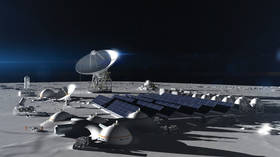NATO unveils ‘space policy’

NATO considers space increasingly important to its mission and fears potential adversaries might seek to harm its orbital assets, the alliance has announced, adding it reserves the right to declare a space attack an act of war.
The US-led alliance publicly released its official Overarching Space Policy on Monday, declaring space to be “increasingly important” for the security and prosperity of its members. NATO also expressed concern that others could use space to project power and track alliance activities, or interfere with space assets of alliance members in time of conflict to “complicate” its response or “deny or degrade” its abilities.
Another concern of NATO is that space capabilities could be affected in a way that’s “damaging or disruptive to economic or public life” but falls “below the thresholds of threat of force, use of force, armed attack or aggression.”
These threats range from jamming and cyberattacks to “high-end kinetic capabilities that produce irreversible effects and which may result in significant and adverse long-term impacts to the space environment,” such as space debris.
NATO defines space as “an inherently global environment,” so even if the alliance isn’t directly involved in a conflict, its space assets could still be considered at risk. Monday’s policy explicitly refers to the communique from the 2021 Brussels Summit, which said that such space threats “could lead to the invocation of Article 5,” NATO’s mutual defense clause. However, such a decision will be made on a case-by-case basis, the policy says.
Furthermore, NATO is “not aiming to become an autonomous space actor,” leaving individual members – such as the US and France – to manage their own military space programs, but with a pledge to voluntarily provide the alliance with “data, products, services or effects that could be required for the Alliance’s operations, missions, and other activities.”
NATO declared space an “operational domain” in 2019, the same year the US established the Space Force as a separate military branch. Since then, the alliance has stood up a space center as part of its air command in Ramstein, Germany, and is establishing a NATO Space Center of Excellence in Toulouse, France.













